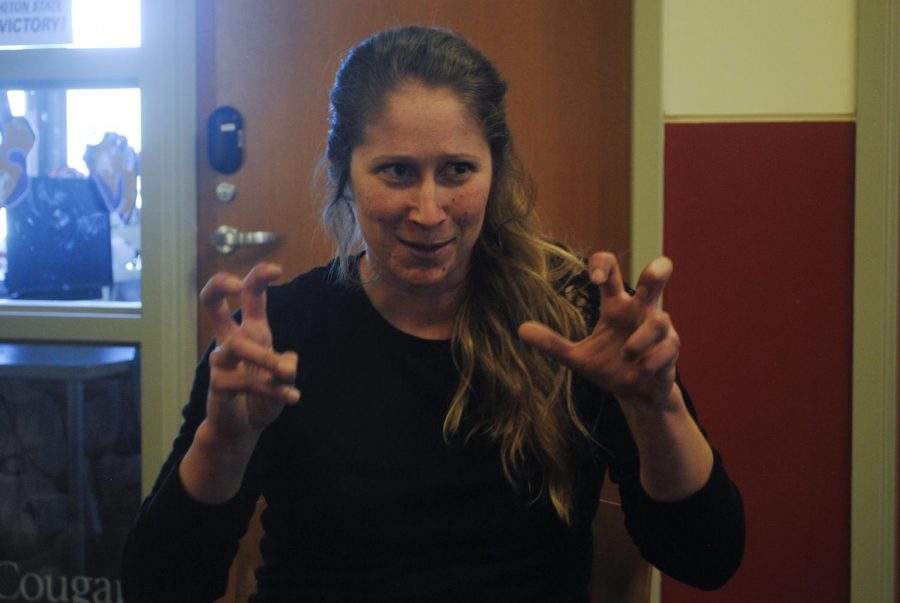Nonprofit to build edible garden in downtown Pullman
Group hopes to bring community together, gain awareness of prairies
ALYSSA STANFIELD | THE DAILY EVERGREEN
Kayla Wakulich, a doctoral student in WSU’s Environmental and Natural Resource Sciences program, says the garden will incorporate the community.
March 20, 2019
The Phoenix Conservancy group, a nonprofit dedicated to the restoration of endangered and threatened ecosystems, will grow its first edible garden in Pullman.
Kayla Wakulich, a doctoral student in WSU’s Environmental and Natural Resource Sciences program, said the garden would grow in downtown Pullman near the Missouri Flat Creek.
“The overall purpose of this edible garden is to bring the community together by gaining awareness of the edible natives within the Palouse,” said Lauren Beckley, a volunteer coordinator and project manager in the Phoenix Conservancy group.
Wakulich said they received a grant from the Pullman Chamber of Commerce. The garden would support the Pullman 2040 initiative, which is the goal of increasing long-term investment in the city.
“This will be a space where people can not only be recreational in the environment but learn and engage with what is left of our really heavily degraded environment,” said Alex Fraik, a doctoral student at WSU who also works with Wakulich.
Fraik said with less than 1 percent of prairie left in the Palouse, the garden is a way to call attention to this problem and teach people about the uses of their native ecosystem.
“Making sure projects are long-term and sustainable to the community is a huge part of our mission statement,” Wakulich said.
The public will have access to the edible garden and can plant seeds that have been pre-selected by the Phoenix Conservancy group, she said.
“Although the public cannot select what is put in the garden, there will be events for the community on how to plant and harvest the seeds,” Wakulich said.
Fraik said a goal of this garden is to reach out to local businesses and possibly create a larger tourist event where there will be tastings of locally-grown plants, as well as potentially using the native plants in local restaurants’ cuisine.











